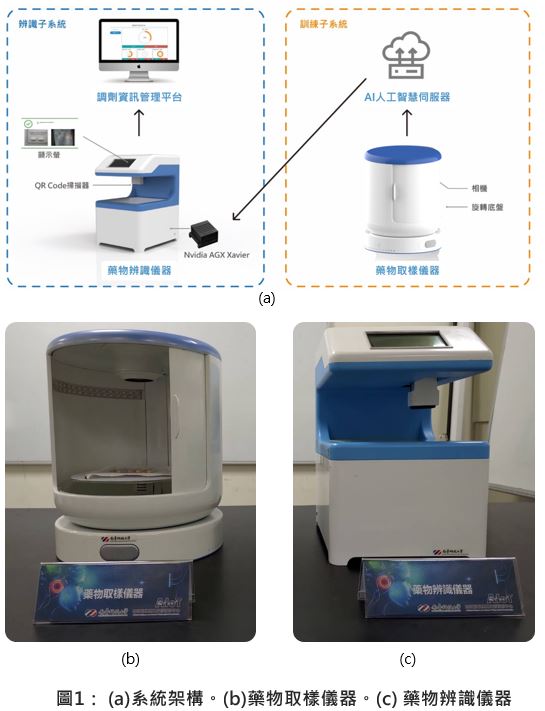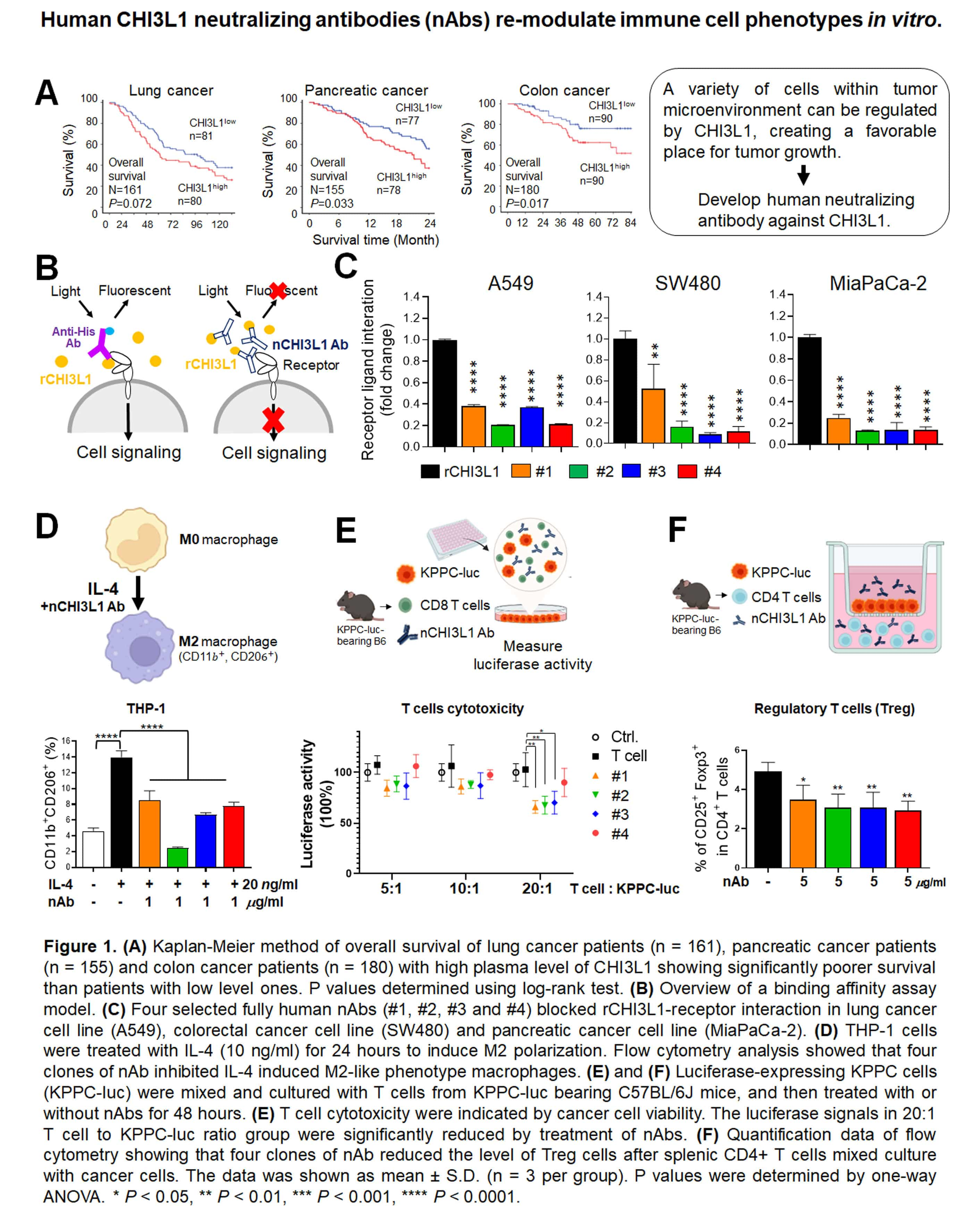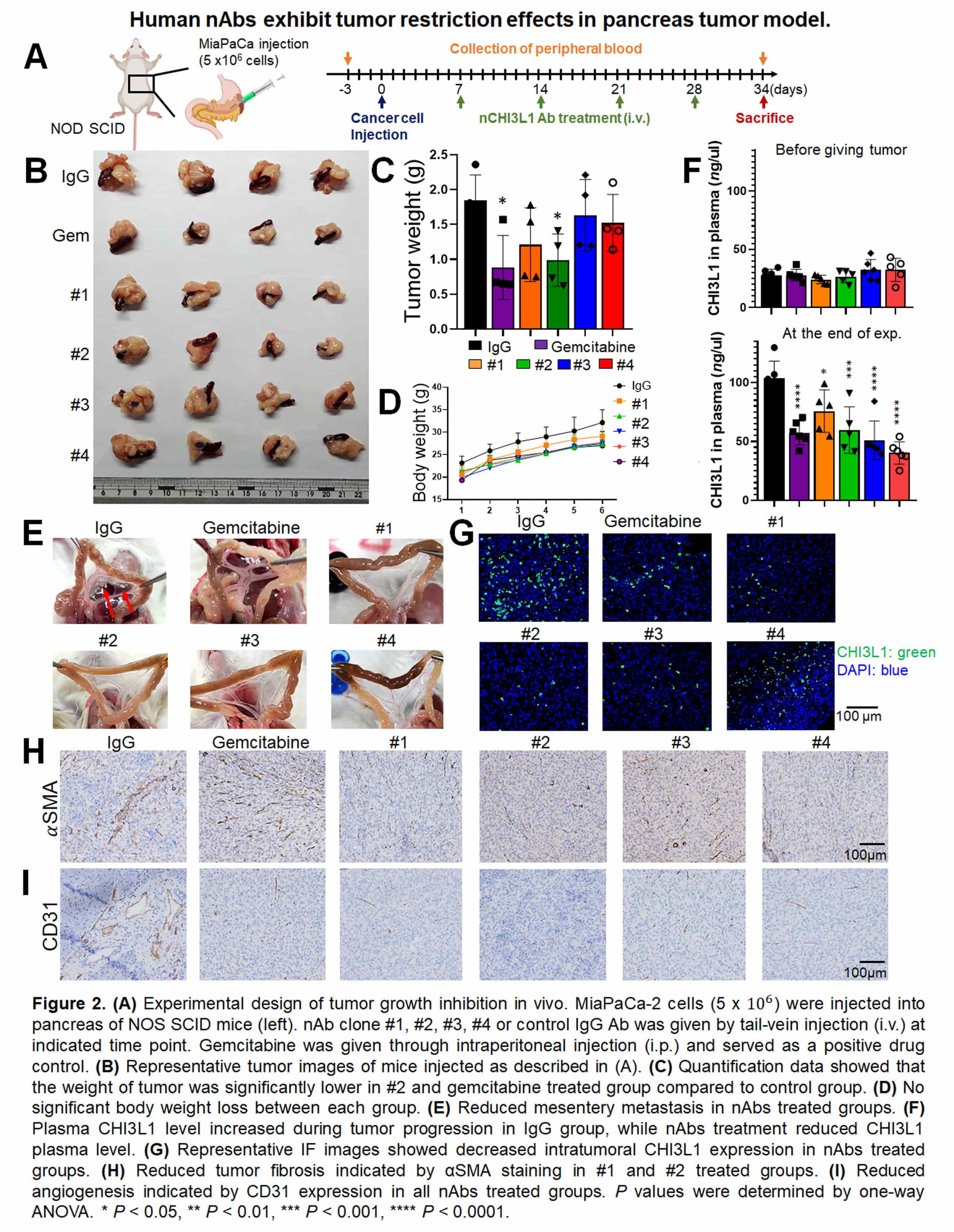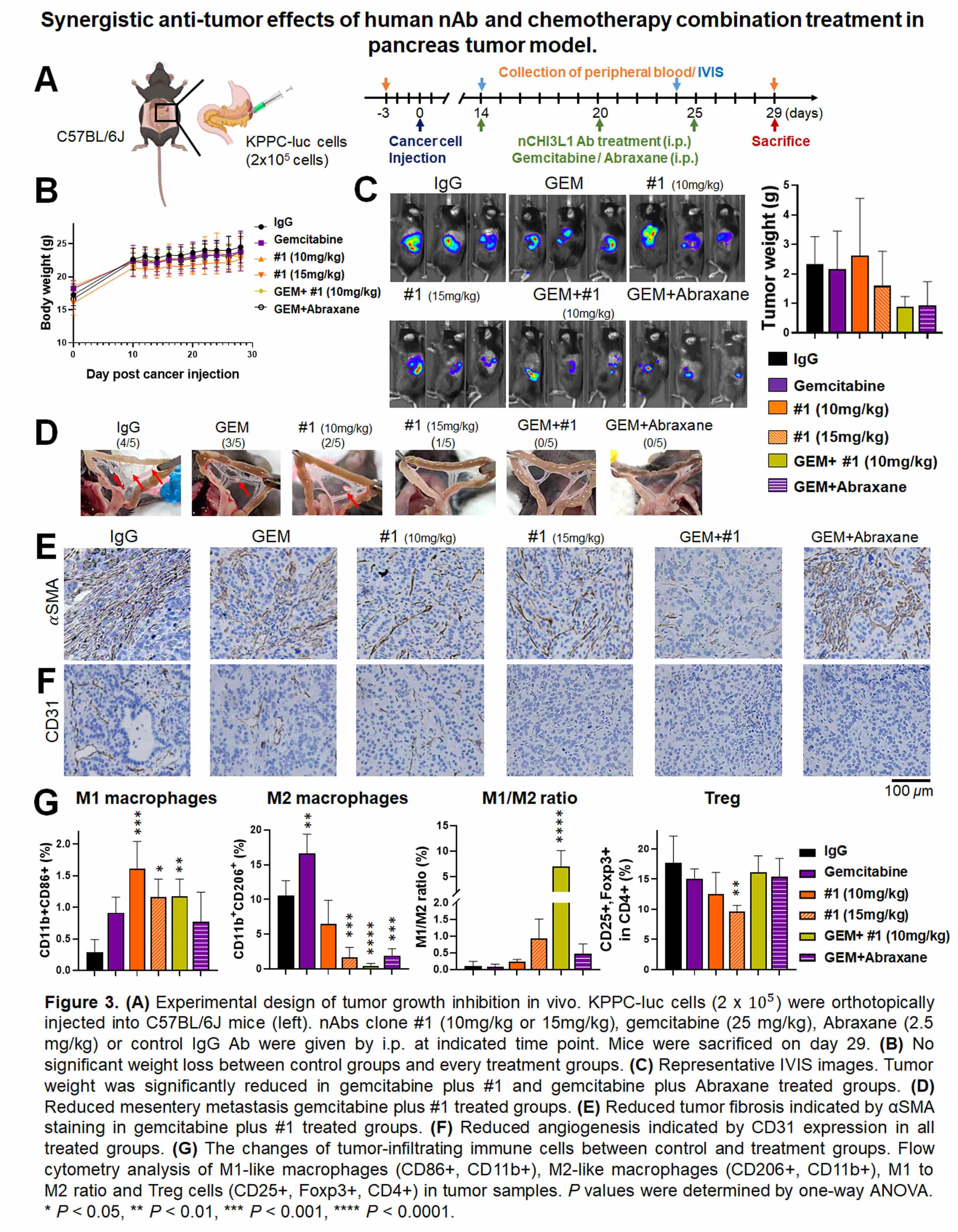| Technical Name | Fully human antibodies against Chitinase 3-like 1 for cancer immunotherapy | ||
|---|---|---|---|
| Project Operator | National Cheng Kung University | ||
| Project Host | 王憶卿 | ||
| Summary | Human CHI3L1 neutralizing antibody targets highly secreted CHI3L1 in TME to restrict tumor growthmetastases through different mechanisms including inhibiting cancer cell growth, increasing immune activity within TME, reducing angiogenesistumor fibrosisattenuating cancer cachexia. |
||
| Scientific Breakthrough | We develop human CHI3L1 neutralizing antibodies targeting highly secreted pro-tumor CHI3L1 protein within TME. A variety of cells within TME, including cancer cells, immune cellsextracellular matrix, are regulated by CHI3L1. Therefore, our human CHI3L1 neutralizing antibodies restrict tumor progression through different mechanisms. In addition, our clinical data revealed that the level of CHI3L1 in plasma serves as a prognostic marker. The plasma CHI3L1 level is also proportional to tumor volume in animal model, exhibiting the great potential of being a marker-guided immunotherapy. |
||
| Industrial Applicability | Pancreatic Cancer Therapeutics market worldwide is projected to grow from US$1.7 Billion in 2019 to US$3.5 Billion in 2029 in the eight major markets (8MM). The current clinical status of PDAC highlights the urgent need to explore novel immunotherapies based on the hallmarks of PDAC that involve heterotypic collaborative interactions between cancer cellsthe cells of the TME. Elevated levels of CHI3L1 in the serum are found in numerous solid tumors including pancreatic cancer. NCKU-AP Biosciences, Inc. collaboration develop human CHI3L1 neutralizing antibodiesobtain preclinical evidence of novel targeting mechanisms, including tumor restriction, immune cells modulationtumor fibrosis reduction. |
||
| Keyword | Cancer immunotherapy chitinase 3-like-1 human neutralizing antibody non-small cell lung cancer pancreatic adenocarcinoma colorectal cancer orthotopic allograft model biomarker | ||
- Contact
- Pei Jia Su
- s58104040@gs.ncku.edu.tw
other people also saw







